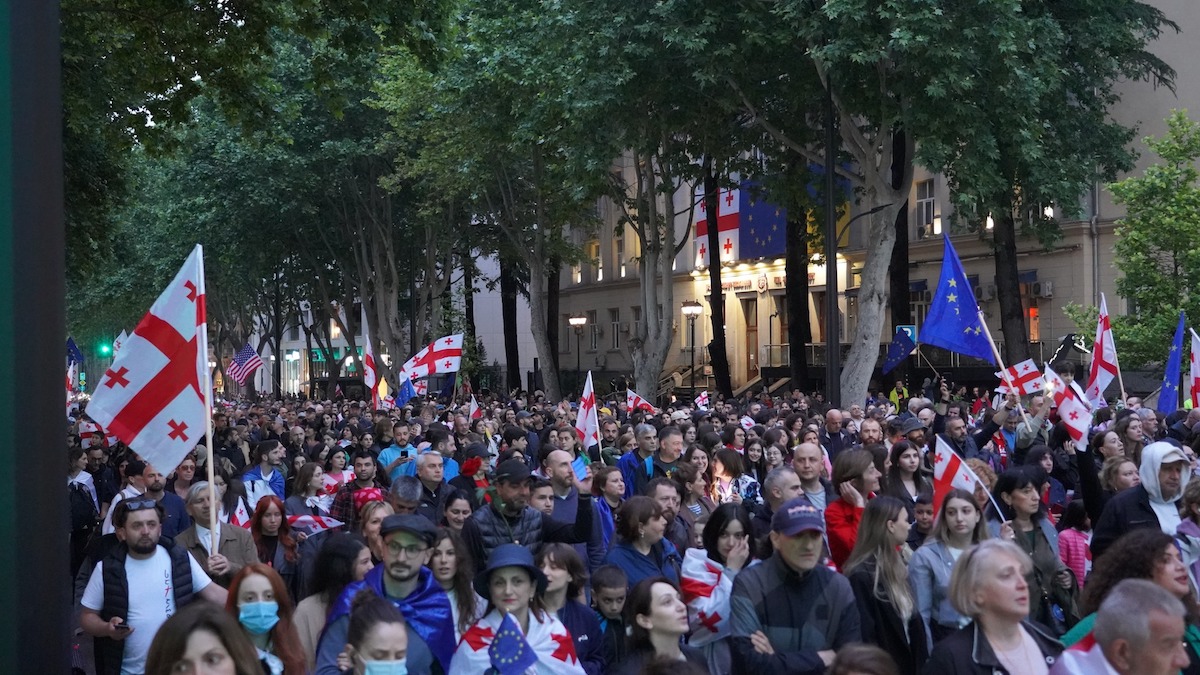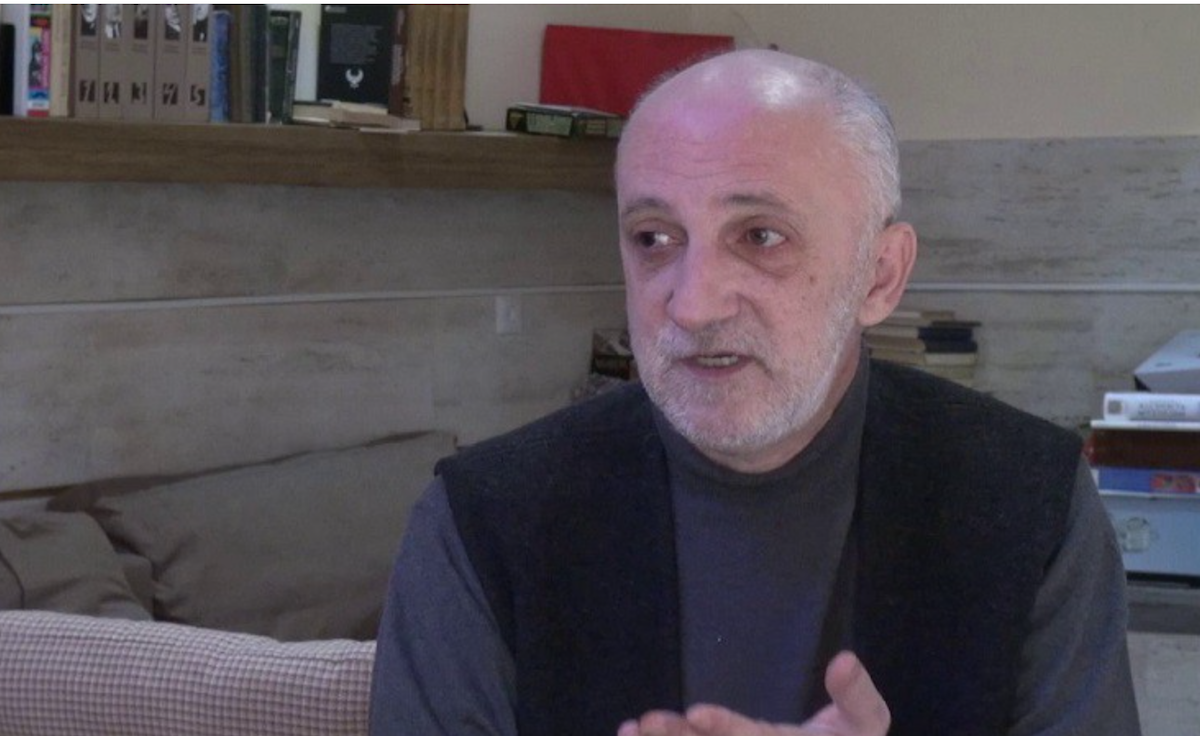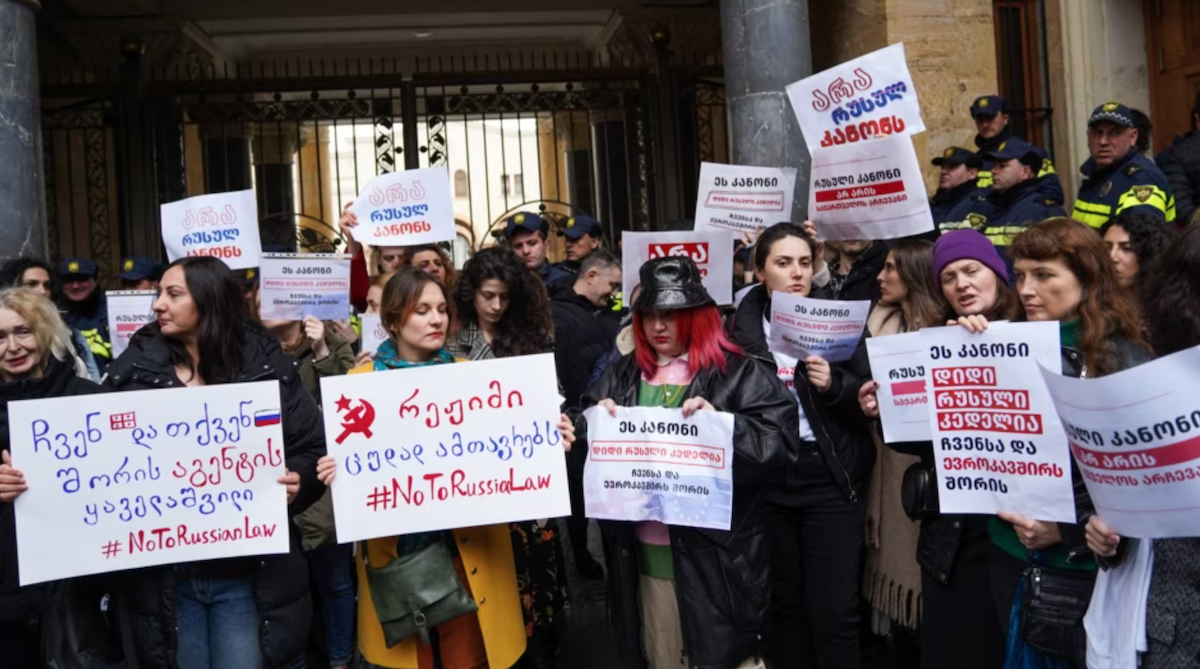
The Foreign Agents Law in Georgia
Georgian non-governmental and media organizations will challenge the so-called “Russian law” in the Strasbourg Court. This was announced at a briefing by Nona Kurdovanidze, chairwoman of the Georgian Young Lawyers’ Association (GYLA).
According to her, the severe consequences caused by the “Russian law” will be contested in the European Court of Human Rights on behalf of 16 media projects, 120 civil organizations, and four individuals.
“The ‘Russian law’ is aimed not only at restricting the freedom of civil society and media but also at dividing all citizens and suppressing critical voices. The fight against independent organizations using Russian methods not only violates fundamental human rights but also undermines the unwavering choice of the Georgian people regarding integration into Euro-Atlantic structures.
Despite the Constitutional Court’s failure to fulfill its obligations, our struggle against the ‘Russian law’ continues, and it will surely end successfully,” Kurdovanidze stated.
On October 9, the Constitutional Court did not suspend the implementation of the “foreign agents” law but accepted the lawsuit for consideration. The plenary session of judges made this decision a month after consultations.
The lawsuit was brought by the President of Georgia, representatives of the opposition, non-governmental organizations, and media regarding the compliance of the “Russian law” with the Constitution of Georgia.
The Constitutional Court stated that substantive discussions on the case would begin; however, the plaintiffs’ request to suspend the implementation of the contested provisions until a final decision is made will not be granted.
The decision includes various opinions from several judges, including Giorgi Kverenchkhiladze and Teimuraz Tugushi, regarding the suspension of the contested provisions.
The four lawsuits filed with the Constitutional Court by the president, public and media organizations, and the opposition were consolidated into a single case. The hearings began on August 29.
Arrested protesters in Georgia
What’s important to know about Georgia’s ‘foreign agents’ law?
- The “Law on Transparency of Foreign Influence”, initiated by the ruling Georgian Dream party, was passed by Parliament on May 28, 2024. The legislation establishes a special registry for “foreign agent organizations,” defined as entities where more than 20 percent of funding comes from foreign grants. In a small and relatively poor country like Georgia, this effectively includes nearly all non-governmental organizations.
- The Parliament adopted this law despite massive protests, persistent calls from Georgia’s Western partners, and the opinion of the Venice Commission of the Council of Europe.
- After the passage of the law, the US announced the first package of sanctions against the “Georgian Dream” government. Secretary of State Antony Blinken warned of a “comprehensive review of US-Georgia cooperation.”
- The European Union also took retaliatory measures. In early July, the EU halted €30 million in aid to Georgia and warned of additional measures to come. Senior EU officials have repeatedly indicated that this law distances Georgia from the EU.
- On July 11, the U.S. House Committee on Foreign Affairs passed the Megobari Act, which imposes sanctions on those involved in passing the “foreign agents” law.
The Georgian government’s main argument is that similar laws exist in the U.S. and several European countries, including France. According to Georgian Dream, every country has the right to protect itself from foreign influence and demand transparency from its organizations.
However, this comparison is inaccurate because:
The American law FARA (Foreign Agents Registration Act), to which Georgian Dream refers, was enacted in the U.S. in 1938, before World War II, and aimed to protect the American public from Nazi propaganda. Neither then nor now did FARA apply to America’s allies and friendly countries.
In France, the law on “Foreign State Influence” includes a specific list of countries to which the law applies. This list comprises countries whose influence France considers a threat, including Russia, China, Turkey, and Iran. The French version also specifically states that this law does not apply to EU countries. The Georgian version lacks such provisions. Consequently, this law directly impacts organizations funded by the U.S. and the EU—friendly and partner countries that support democratic processes and numerous vital projects in Georgia, ranging from healthcare and infrastructure to strengthening civil society.
Furthermore, FARA stipulates that the law does not apply to media or NGOs, only to lobbying organizations. The Georgian version does not have this clarification.
Overall, the Georgian law is similar to the Russian law, which primarily affected media and the NGO sector. As a result, all non-governmental and media organizations not controlled by the Kremlin have been shut down in Russia. Hence, the Georgian law has been dubbed the “Russian law.”
It’s also important that this law contradicts EU legislation. When a similar law was adopted in Hungary, it was annulled by the European Court of Human Rights because it was directly aimed at silencing the media and oppressing NGOs.


